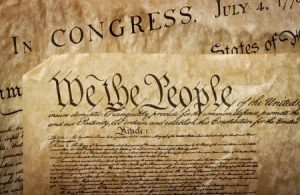 On June 22, 2016, former U.S. Solicitor General Paul D. Clement filed an amicus brief defending the Eight Amendment’s Constitutional Right to Bail with the United States Court of Appeals for the 11th Circuit Court. This was filed on behalf of the American Bail Coalition, the Georgia Association of Professional Bondsmen, and the Georgia Sheriffs’ Association.
On June 22, 2016, former U.S. Solicitor General Paul D. Clement filed an amicus brief defending the Eight Amendment’s Constitutional Right to Bail with the United States Court of Appeals for the 11th Circuit Court. This was filed on behalf of the American Bail Coalition, the Georgia Association of Professional Bondsmen, and the Georgia Sheriffs’ Association.
This was in response to lawsuits from the Equal Justice Under Law foundation suing cities throughout the country with the objective to end monetary bail. There is currently a “bail is unconstitutional” trend going on throughout the country. The news stories of this are all similar: a poor person is arrested and cannot afford the bail to be released while awaiting trial. They juxtapose this with how a “rich” person can easily afford bail, it’s not fair, and therefore it’s unconstitutional. While this may be a myopic and false narrative of what is actually happening, that is their story and this brief seems to be a good answer to their questionable actions.
In the brief, the former Solicitor General Paul D. Clement asserts monetary bail is plainly constitutional with the following:
| “Plaintiff would have this Court effectively abolish monetary bail on the theory that any defendant is entitled to immediate release based on an unverified assertion of indigency. Nothing in the Constitution supports that extreme position. Instead, the text and history of our founding charter conclusively confirm that monetary bail is constitutional.” |
He then puts forth an argument beginning with historical and traditional significance of how bail and bondsmen, or sureties, have been an integral part of criminal justice in America. Clement explained that historically
| “statutory and constitutional provisions…always struck a balance between the liberty of the accused and the security interests of the community.” |
Clement’s next argument is why monetary bail is the most effective and efficient way to balance the interests of the defendants and communities. He explains the detrimental effects on communities should commercial sureties be banned. Among them are high failure-to-appear rates which have a downward, spiraling effect for the community in terms of both cost and safety. Numerous studies are referenced backing up the argument that commercial bail is far and away more beneficial for the community and the arrested. The contrary argument attacking bail
| “bears the heavy burden of proposing a workable alternative. But plaintiff has offered none. And the evidence suggests there is none.” |
Clement then derails the plaintiff’s constitutional arguments against monetary bail and points out the frivolousness of the plaintiff’s arguments:
| “Plaintiff mounts a frontal constitutional attack on monetary bail. He insists that the City release any defendant who says he cannot post bail—and that it do so immediately, without any reasonable time for a hearing. But the Constitution requires neither of those demands…
the Constitution clearly permits communities to adopt monetary bail procedures aimed at securing appearance at trial and protecting society from dangerous individuals. As a textual matter, the Eighth Amendment pre-supposes the permissibility of monetary bail. If plaintiff’s theory were correct, the Eighth Amendment would read: “no bail shall be required.” But instead it provides only that “[e]xcessive bail shall not be required.” ” |
I want to say ‘Thank You’ to the the American Bail Coalition, the Georgia Association of Professional Bondsmen, and the Georgia Sheriffs’ Association. Thank you for taking up the fight for the rest of us by hiring former U.S. Solicitor General Paul D. Clement to do this excellent work. While many may be largely unaware of this, it is a vital issue facing our country and the outcome will be far-reaching, impacting all segments of society.
